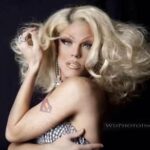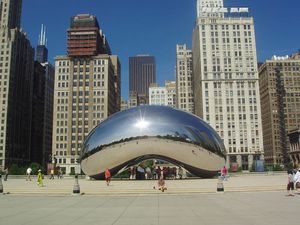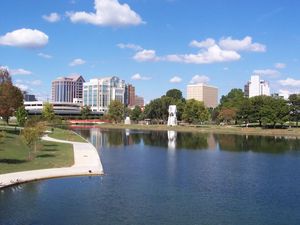Traditionally, science is a male-dominated field. For this reason, Dr. Mae C. Jemison is such a phenomenon. She is the first African-American woman astronaut.
She was born October 17, 1956, to Charlie and Dorothy Jemison in Decatur, Alabama. Later, in 1973, Jemison graduated from Morgan Park High School after moving with her family to Chicago, Illinois. A bright student, she completed her undergraduate education at Stanford University where she obtained degrees in Chemical Engineering and Afro-American Studies. Then Jemison further accented her education by getting a doctorate degree in medicine from Cornell University in 1981. This preparation is what eventually led her to NASA.
NASA selected Dr. Jemison to be in their astronaut program in June of 1987. This appointment occurred after she spent a little over two years as an Area Peace Corps medical officer for Sierra Leone and Liberia in West Africa. By this time, she’d also formed The Jemison Group, Inc., a technology design and consulting company that focused on projects in the area of solar thermal electricity. When she began working for NASA, she was assigned to be the science mission specialist.
Jemison left with her crew on the Endeavour for space in September of 1992. The STS-47 was a cooperative mission between Japan and the United States. It lasted eight days and included 127orbits of the Earth and several life science and material processing experiments. Dr. Jemison was one of the investigators on the bone cell research experiment. In 1993, after completing her mission, she left NASA. Today, she continues to practice medicine and run her technology company.
Quotes from Jemison
” There have been lots of other women who had the talent and ability before me. I think this can be seen as an affirmation that we’re moving ahead. And I hope it means that I’m just the first in a long line (of astronauts).”
“More women should demand to be involved. It’s our right. This is one area where we can get in on the ground floor and possibly help to direct where space exploration will go in the future. ”
“The thing that I have done throughout my life is to do the best job that I can and to be me.”
“People may see astronauts and because the majority are white males, they tend to think it has nothing to do with them. But it does.”
“When I’m asked about the relevance to Black people of what I do, I take that as an affront. It presupposes that Black people have never been involved in exploring the heavens, but this is not so. Ancient African empires — Mali, Songhai, Egypt — had scientists, astronomers. The fact is that space and its resources belong to all of us, not to any one group.”
“I want to make sure we use all our talent, not just 25 percent.”
“Don’t let anyone rob you of your imagination, your creativity, or your curiosity. It’s your place in the world; it’s your life. Go on and do all you can with it, and make it the life you want to live.”
“Never be limited by other people’s limited imaginations…If you adopt their attitudes, then the possibility won’t exist because you’ll have already shut it out … You can hear other people’s wisdom, but you’ve got to re-evaluate the world for yourself.”
“It is important for scientists to be aware of what our discoveries mean, socially and politically. It’s a noble goal that science should be apolitical, acultural, and asocial, but it can’t be, because it’s done by people who are all those things.”
” Science is very important to me, but I also like to stress that you have to be well-rounded. One’s love for science doesn’t get rid of all the other areas. I truly feel someone interested in science is interested in understanding what’s going on in the world. That means you have to find out about social science, art, and politics.




